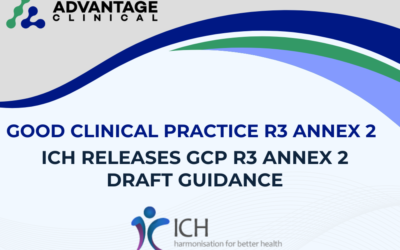WHO’s Global Guidance for Best Practices in Clinical Trials
In May 2022, the World Health Assembly (WHA) passed Resolution WHA75.8, aiming to improve the quality, coordination, and reliability of clinical trials across the globe. This resolution addressed the need for high-quality evidence to support health interventions and called on the WHO to create a framework of best practices for clinical trials. In response, the WHO released a draft version of its Guidance for Best Practices for Clinical Trials in July 2023, with the goal of creating a globally accepted standard for conducting ethical, scientifically rigorous, and inclusive trials. With stakeholder feedback received, this guidance is set to be finalized and launched during a webinar on September 25, 2024.
Right on the heels of this WHO framework will come ICH GCP E6R3 likely in October or November of this year.
The WHO’s guidance addresses key challenges in clinical trials, including issues of scientific rigor, transparency, and the representation of under-represented populations. Below, we explore the core aspects of this important guidance and its potential to transform the clinical trial landscape.
Scientific and Ethical Standards
A key focus of the WHO’s draft guidance is ensuring that clinical trials are not only scientifically robust but also ethically sound. It emphasizes the need for randomization, sufficient sample sizes, and unbiased assessments of outcomes. These elements ensure that trials produce reliable data, minimize errors, and respect participants’ rights. By setting these scientific and ethical standards, the WHO aims to reduce research waste and ensure that trial results can be trusted by healthcare providers and policymakers.
Strengthening the Global Clinical Trial Ecosystem
The draft guidance also outlines measures to strengthen the clinical trial ecosystem globally. It highlights the need for adequate infrastructure and skilled personnel to conduct trials efficiently and ethically. This includes encouraging collaboration between national authorities, researchers, and funders to streamline processes and reduce redundancy. The goal is to ensure that clinical trials are conducted with the highest standards while using resources efficiently to deliver meaningful results.
Promoting Inclusivity and Representation
Historically, certain populations—particularly those in low- and middle-income countries (LMICs), as well as children, pregnant women, and older adults—have been under-represented in clinical trials. The WHO’s guidance makes inclusivity a top priority, advocating for the inclusion of diverse populations to ensure that trial results are applicable to all groups. By including under-represented populations, the results of clinical trials become more broadly relevant, ensuring that medical interventions benefit everyone, not just select groups.
Preparedness for Health Emergencies
The COVID-19 pandemic underscored the need for rapid clinical trial responses during health emergencies. The WHO’s draft guidance emphasizes the importance of being prepared for future public health crises by having pre-approved protocols and systems ready to launch trials quickly. This approach ensures that when an emergency strikes, clinical research can proceed without delays, helping to identify effective treatments and interventions in real-time.
Actionable Recommendations for Stakeholders
The WHO guidance provides clear recommendations for key stakeholders, including governments, researchers, and funders. Governments are encouraged to invest in clinical trial infrastructure and streamline regulatory processes to speed up trial approvals. Researchers are urged to design scientifically rigorous and ethically sound trials that prioritize inclusivity and collaboration. Funders are advised to support research that addresses critical public health challenges and invest in building research capacity, particularly in LMICs.
Conclusion
The WHO’s Guidance for Best Practices for Clinical Trials is poised to set a global standard for improving the quality, inclusivity, and efficiency of clinical research. With the final guidance set to launch in September 2024, stakeholders across the clinical research community have an opportunity to adopt these best practices and ensure that trials are conducted ethically, inclusively, and with scientific rigor.
By following these guidelines, clinical trials can not only generate high-quality evidence but also ensure that medical advancements reach all populations, particularly those who have been historically under-represented. As the global health landscape continues to evolve, this guidance will play a critical role in shaping the future of clinical research for the betterment of public health worldwide.
Mark your calendars for September 25, 2024, when the WHO will host a webinar for the official launch of this transformative guidance. Register on the WHO Website Here



